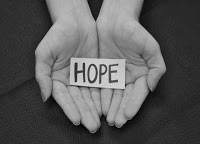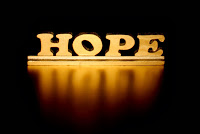Recently I was with a friend bemoaning then then soon-to-be passed Tax Reform bill that clearly tilted toward benefitting the wealthy and the corporations while giving modest relief and possible loss of healthcare to middle and lower income individuals. Added to the recent confirmation of conservative judges, the announcement recognizing Jerusalem as Israel’s capital, and the ongoing back-and-forth threats between Trump and Kim Jong-un of North Korea, there was much to be depressed about. However, I did not share my friend’s sense of hopelessness.
Now part of my more hopeful response was the recent #MeToo campaign that in a few short months has brought sexual harassment to the forefront and brought down many well-known and powerful men who used their prestige and power to abuse women in ways from grotesque to downright inhumane. Things that seem like they can never change, sometimes do, when timing and organized people get together.
Coupled with that is how I have come to understand hope itself. Somewhere in my future plans is the idea of writing a book about hope. That is still ways off, but let me give my central thesis as it stands right now: Hope is not something we wait for, but something we live into and work for. Simply put Hope is a verb, not a noun. Essayist Rebecca Solnit says that for her the future is hopeful because it is uncertain. I would add that the actions we take now have an opportunity to shape that uncertainty.
For me, the inspiration for this view of hope comes from many places, but most centrally is located in my Christian faith and in particular the Christmas story. For many people around the world, Christmas is about a little baby, Advent candles, gift-giving, family gatherings and jolly ole St. Nick. I confess that I too partake in all these traditions, but increasingly I have come to see the story of the adolescent peasant girl giving birth to a child at a time of intense oppression and government-sponsored violence to also be a message of hope.
Whether or not one accepts the idea of a God-initiated virgin birth, the song Mary sings at the announcement of her impending conception is a call to revolution and hope. We can miss the words in the beautiful singing of renditions of “Ave Maria” or the folksy sounds of “Away in a Manger,” but the words are profound. Hear again the words. After praising God for this miracle she launches into a call for a great reversal:
His mercy extends to those who fear him, from generation to generation;
He has performed mighty deeds with his arm, he has scattered the proud in their inmost thoughts;
He has brought down rulers from their thrones, but has lifted up the humble;
He has filled the hungry with good things, but has sent the rich away empty;
(Luke 1.51-54)
Jesus was born into a world where the poor were used, despised and then thrown away. They were mere fodder for the political and economic machines of their day. They were afforded no status, no voice, no dignity. Jesus was born into that world as one of those despised and rejected oppressed persons. While Mary’s words – spoken in the past tense – seem to suggest that his birth itself would accomplish these things, we know from Jesus’ own life, not to mention the record of history, that oppression, exploitation, deceit and the arrogant abuse of the powerful still goes on. Yet history also records that in spite of that, people of little to no account, have and still can bring the powerful down, scatter the proud and bring healing, reconciliation, and justice in the most unlikely places. Jesus himself died a martyrs death, but his followers, and those inspired by his words and actions have worked quietly and successfully to bring peace, release the enslaved, and liberate the oppressed.
Despite the royal and capitalistic trappings that often surround him, Jesus was not just a stained-glass shepherd speaking of life after death, but was one who challenged the oppressive powers of his day, by announcing a new era, a new community and society, he called The Reign of God. Martin Luther King, Jr. gave it a more contemporary sound when he called Jesus’ new way of life “The Blessed Community.” Of that Blessed Community King said: “Our goal is to create a beloved community and this will require a qualitative change in our souls as well as a quantitative change in our lives.” Another one of my mentors, the great Brazilian educator Paulo Freire called it “utopia” which for him was not some far-off, never-to-be-seen reality, but a vision of a free and just society that moves people from fatalism to social changing action. As Freire said: “In the final analysis, the Word of God is inviting me to re-create the world… [but] I am not really able to hear that word, then unless I am fired up to live it fully.” In other words, the Reign of God, the Blessed Community, utopia or whatever you call what you hope for, will not come without living into it. Hope is a verb, not a noun.
While I am certainly not comfortable with or immune to the current state of affairs, and I get frustrated and angry and a Congress or a state legislature that says they represent the people but only listen to their wealthy donors, I am not without hope. For me, the Christmas story is a call to continued action toward making the world, the nation and my local community more compassionate, equitable, healthy and safe from all the Herods and Trumps and Kim Jong-uns of the world who would try to lead me to passive despair. As I said recently to another friend: “Because Jesus said, if we have faith the size of a mustard seed we can move mountains, I am heading toward that mountain in defiance, expecting it to move when we get there.” I know I won’t get there by myself but in community. Hope is a verb, so we must keep moving together.
May your commitment to hope be renewed this Christmas season.
Sources:
Rebecca Solnit – Hope in the Dark: Untold Histories, Wild Possibilities. Haymarket Books, 2016.
Paulo Freire – Read Paulo Freire: His Faith, Spirituality & Theology, James Kirylo & Drick Boyd, Sense Publishers, 2017.
Martin Luther King, Jr. – An image used in many sermons and writings


